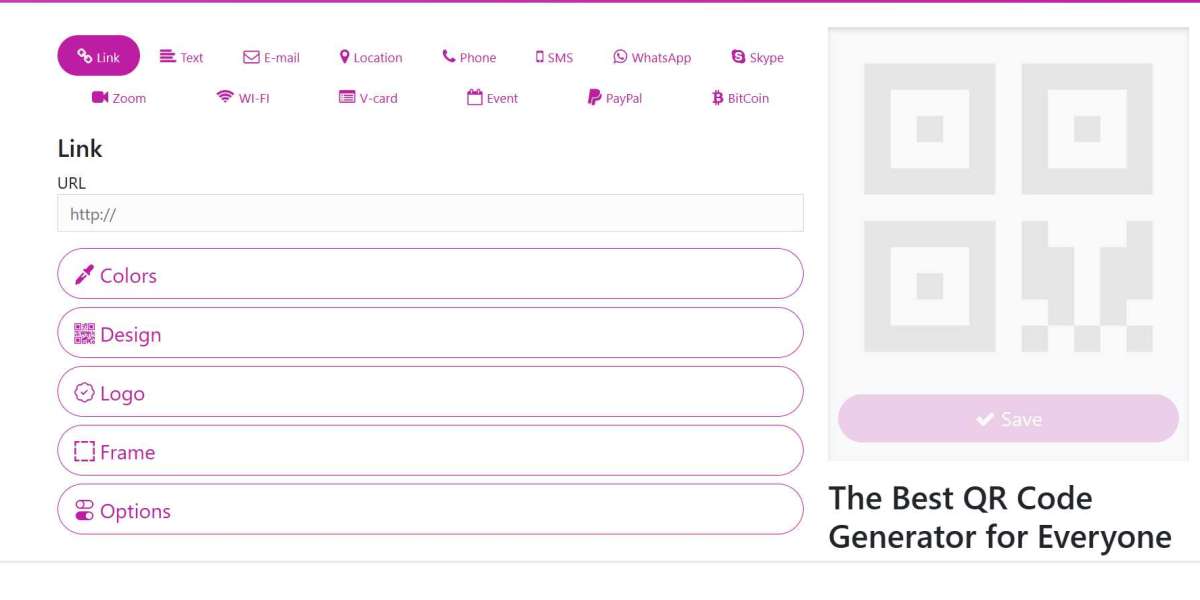QR codes, those pixelated black and white squares, have become ubiquitous in our digital age. They're not just a tech fad but a valuable tool in various aspects of our lives. In this article, we'll delve into the world of QR codes, learn how to generate them for free, explore scanning methods, and discover innovative applications that go beyond the basics.
What are QR Codes?
At the heart of this technology lies a simple concept: QR stands for Quick Response. These codes are two-dimensional barcodes that store information. Originally developed in Japan for tracking automotive parts, QR codes can hold various data types, including URLs, text, contact information, and more.
The Evolution of QR Codes
QR codes have come a long way since their inception. From being used in the automotive industry to now being found on product packaging, business cards, and billboards, they've become an essential part of our digital landscape.
Why Use QR Codes?
Before we dive into generating and scanning QR codes, let's understand why they are so popular.
QR codes are:
- Convenient: They allow quick access to information with a simple scan.
- Versatile: They can store a wide range of data types.
- Cost-Effective: Creating and using QR codes is often free.
- Trackable: Marketers can monitor QR code usage and user engagement.
- Contactless: They reduce physical contact in various processes.
Generating QR Codes
Now that you're convinced of their utility, let's explore how to create QR codes for free.
1. Online QR Code Generators
Online tools make QR code generation a breeze. Websites like QRCodeMonkey and QRStuff allow you to create QR codes for websites, contact details, or even Wi-Fi access information. Simply input your data, customize the design if needed, and download your QR code.
2. Using QR Code Software
For more control and versatility, you can use QR code software like QR Code Studio. Such software lets you generate QR codes with advanced features, such as adding logos or changing colors.
Scanning QR Codes
Creating QR codes is just one part of the equation; scanning them is equally important.
1. Smartphone Apps
Most smartphones come with built-in QR code scanning functionality. Simply open your device's camera app and point it at the QR code. Your phone will recognize the code and prompt you to take appropriate action, whether it's opening a website or saving contact details.
2. QR Code Scanners
If your device doesn't support native scanning or you want a dedicated QR code scanner, various free apps are available on app stores. Popular options include "QR Code Reader" and "Barcode Scanner."
Beyond Basic Scanning
While QR codes are often associated with simple tasks like opening a website link, their potential goes far beyond.
1. QR Codes in Marketing
Marketers use QR codes creatively for campaigns. They lead users to promotional content, videos, or surveys, allowing for interactive advertising.
2. QR Codes in Healthcare
In the healthcare industry, QR codes on patient wristbands or medication packaging store critical information, ensuring accurate treatment and data tracking.
3. QR Codes in Education
Teachers use QR codes to share additional learning resources, making it easy for students to access materials like lecture notes and quizzes.
4. QR Codes in Contactless Payments
QR codes have become a standard for contactless payments in many regions. They offer a secure and efficient way to make transactions without physical cash.
Tips for Effective QR Code Usage
Before you start plastering QR codes everywhere, here are some tips to ensure you use them effectively:
- Clear Instructions: Provide users with clear instructions on how to scan the code.
- Testing: Always test your QR codes to ensure they work as intended.
- Design Considerations: If you customize your QR code, ensure it remains scannable.
- Mobile Responsiveness: Ensure the linked content is mobile-friendly.
- Tracking: Use analytics to measure the success of your QR code campaigns.
Conclusion
QR codes have evolved from their origins in manufacturing to become a versatile tool in our everyday lives. From generating QR codes for free to scanning them with ease, they offer convenience and innovation. Whether in marketing, healthcare, education, or payments, QR codes have found their place in diverse fields. By following best practices, you can harness their potential effectively.
FAQs
1. Are QR codes secure to use for payments?
- QR codes used for payments often employ encryption and security measures, making them a secure method for transactions.
2. Can I create a QR code for my website without any technical knowledge?
- Absolutely! Online QR code generators are user-friendly and don't require technical expertise.
3. How do QR codes benefit marketers?
- QR codes help marketers engage with their audience through interactive content and track user engagement.
4. Are there any limitations to the data that can be stored in a QR code?
- Yes, there are limitations to the amount of data a QR code can hold. Large datasets may require other methods of storage.
5. What's the future of QR codes?
- QR codes continue to evolve, with potential applications in fields like augmented reality and digital identity verification. Their future looks promising.







